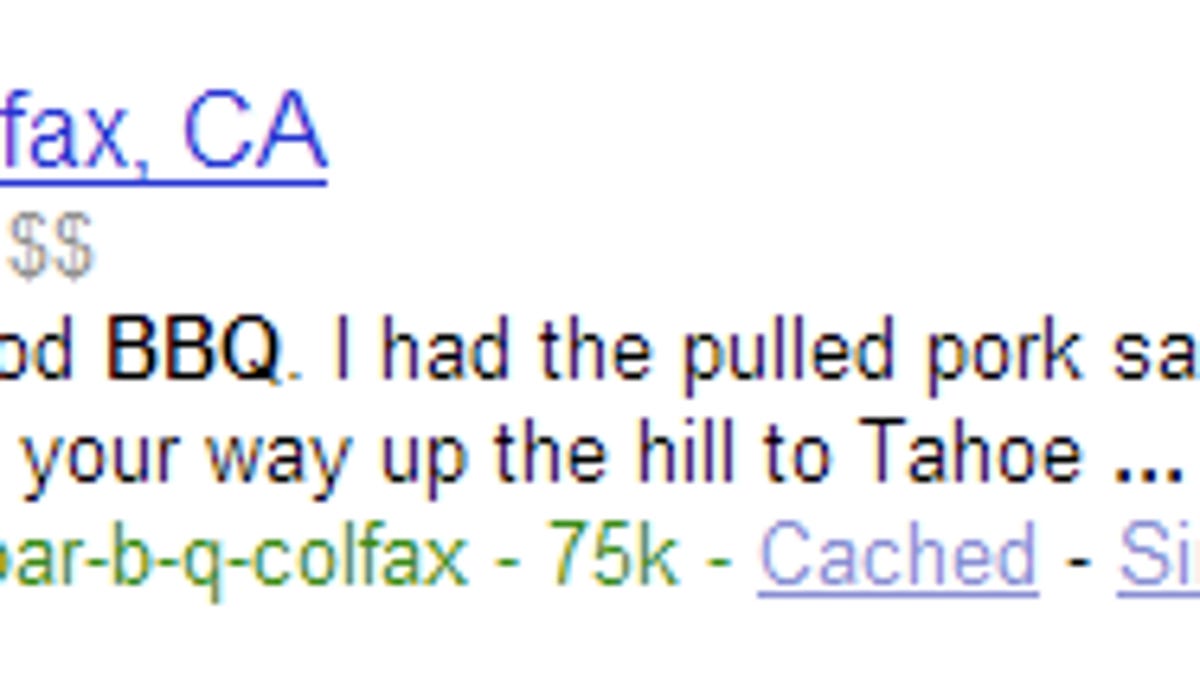Google embraces exercise in Semantics
Google has not always been keen on the Semantic Web, but its new Rich Snippets search feature is a step toward the concept.

Although Google has traditionally downplayed the importance of the Semantic Web, the company took a noticeable step toward embracing it Tuesday.
Google introduced an enhancement to its search results at Searchology 2009 that uses technologies commonly associated with the Semantic Web, or the concept of making Web pages more discoverable and understandable to computers. Calling it "Rich Snippets," Google's Marissa Mayer and Kavi Goel demonstrated how Google is working with tech publishers (including CNET) to display new types of information in search results such as the number of stars assigned to a particular gadget.
The Semantic Web is a project spawned by World Wide Web Consortium director Tim Berners-Lee in hopes of making the Web smarter, more attune to meaning, and able to deliver information with little human prodding. The idea is to move beyond the limits of common Web pages--which can display information to a Web browser but are unable to broadcast the meaning and significance of that information to search engines and other computers--theoretically making for more relevant search results.
It has proven harder to do that in practice, however, than in theory. There are several formats that have been evangelized for the Semantic Web, and without incentives to add such formats to their Web pages (let alone make a bet on one or the other) publishers haven't made much progress since Berners-Lee began advancing the concept in the late 1990s.
And that's especially true if the 800-pound gorilla of the Web isn't keen on providing those incentives. Google has appeared cold to the idea several times in the past, as recently as earlier this year when researchers opined: "The first lesson of Web-scale learning is to use available large-scale data rather than hoping for annotated data that isn't available." Or, in short, work with what you've got when it comes to organizing the Web.
But rival Yahoo has embraced Semantic Web technology with its SearchMonkey project, encouraging Web publishers to add data to their sites that helps improve the quality of search results. Even if it's had to make a few tweaks, it has started getting Web sites used to the idea of adding structured data, or semantic technology, to their code.
Google's embrace of such technology gives it an immediate boost, and presents a few initial worries. Google's heft on the Web means it can get companies that depend on the quality of its search results (such as CNET and Yelp, featured in the demonstration) to follow its lead and force others to follow suit to compete.
But publishers must be sure that Google has backed the right horse to feel totally confident in its approach. Google's Rich Snippets can decode two different Semantic Web technologies--RDFa and microformats--to produce its enhanced search results, which seem to be popular among those advocating this approach to Web development.
The company said it would not penalize publishers who do not participate in the Rich Snippets program by declaring their Web pages less relevant, which theoretically makes this an opt-in program. But Google's Goel acknowledged that Web pages enhanced with Rich Snippets could see higher click-through rates, which would improve their relevance in Google's algorithm.
Backers of Semantic Web technology will likely find both something to cheer and cause for concern with Google's announcements on Tuesday. That seems par for the course when it comes to gauging the impact of decisions made by one of the most important companies in the tech world.